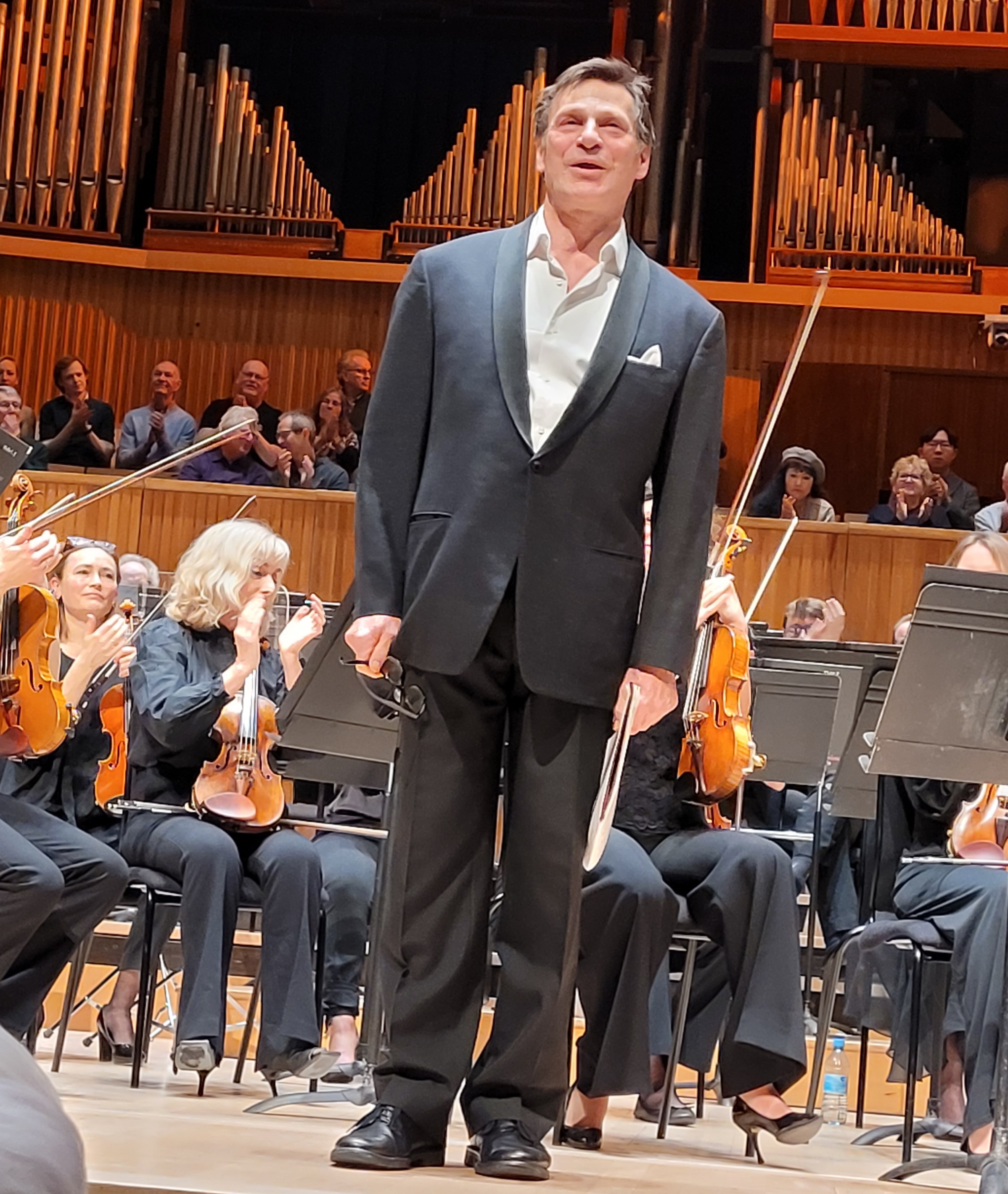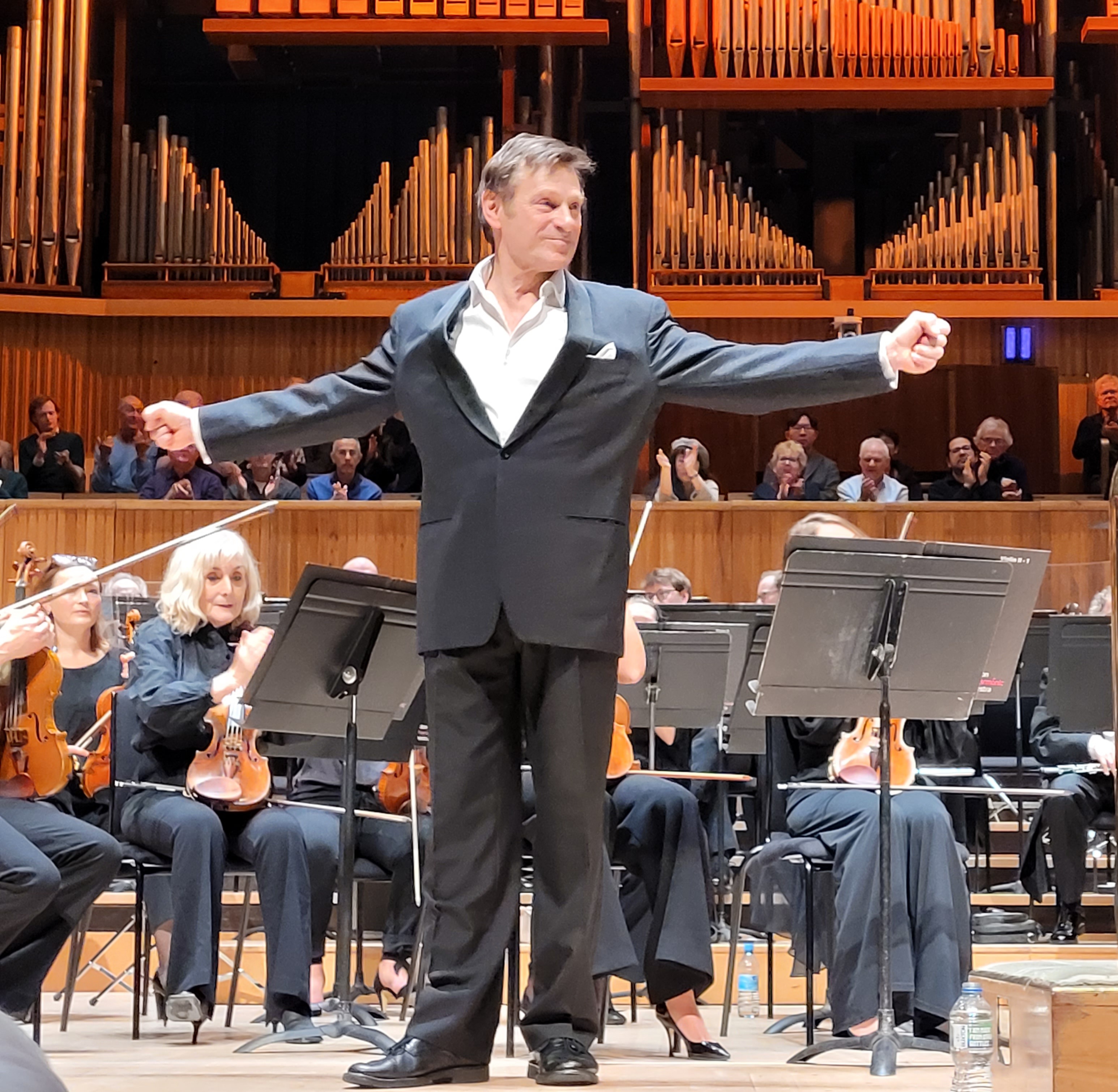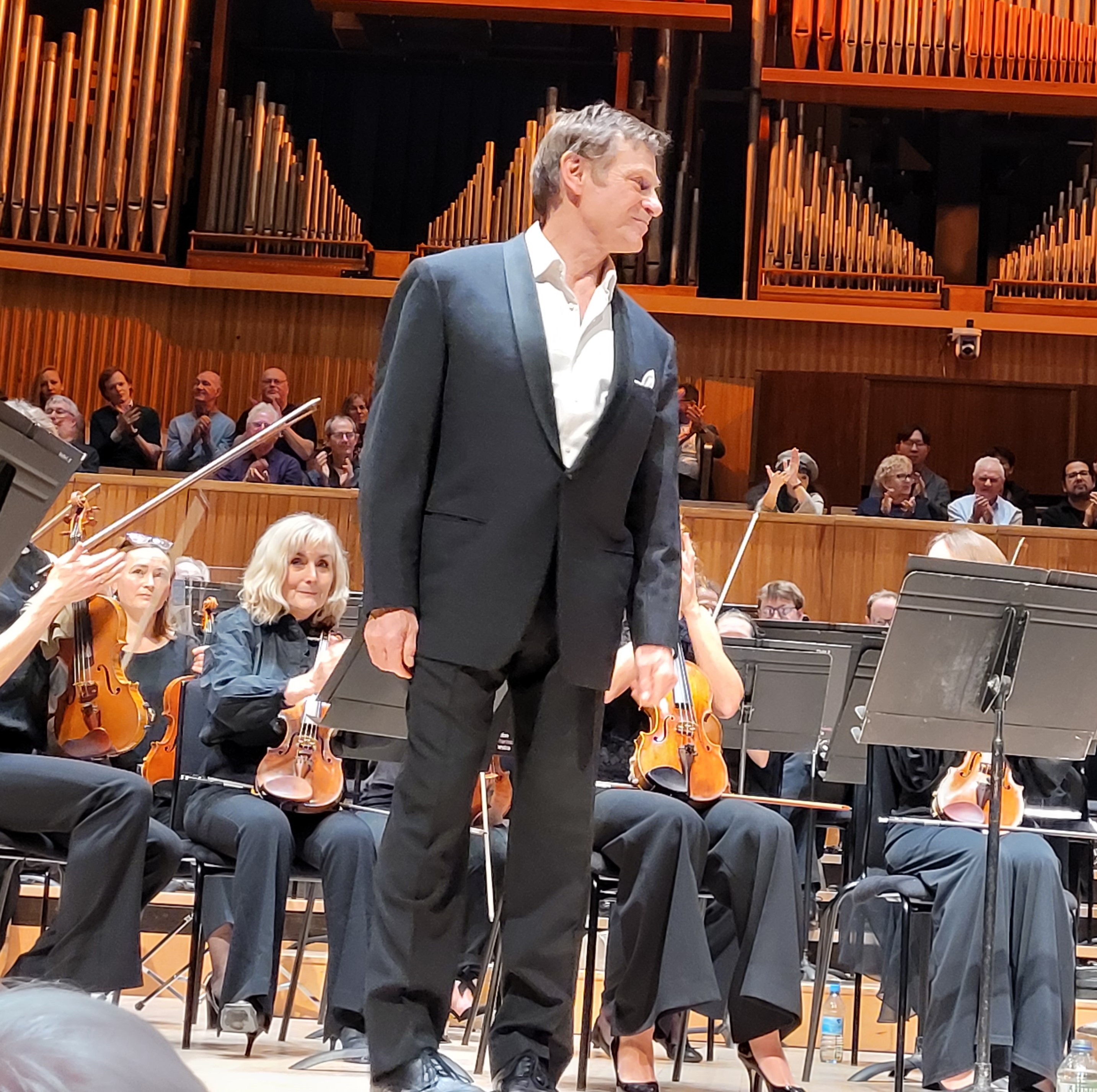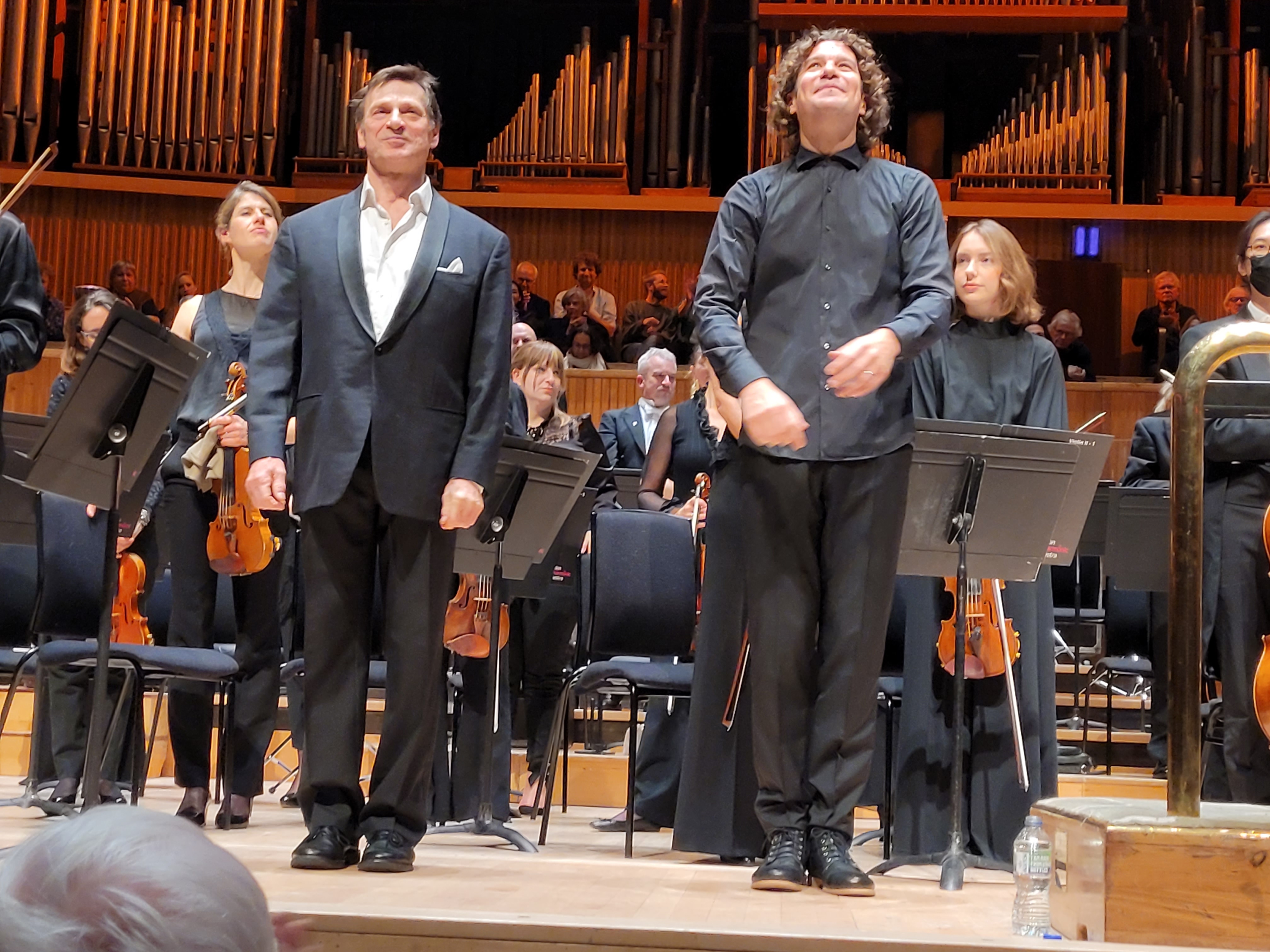Royal Festival Hall, London
|
30 November 2022 |
7:30 pm
7:30 pm
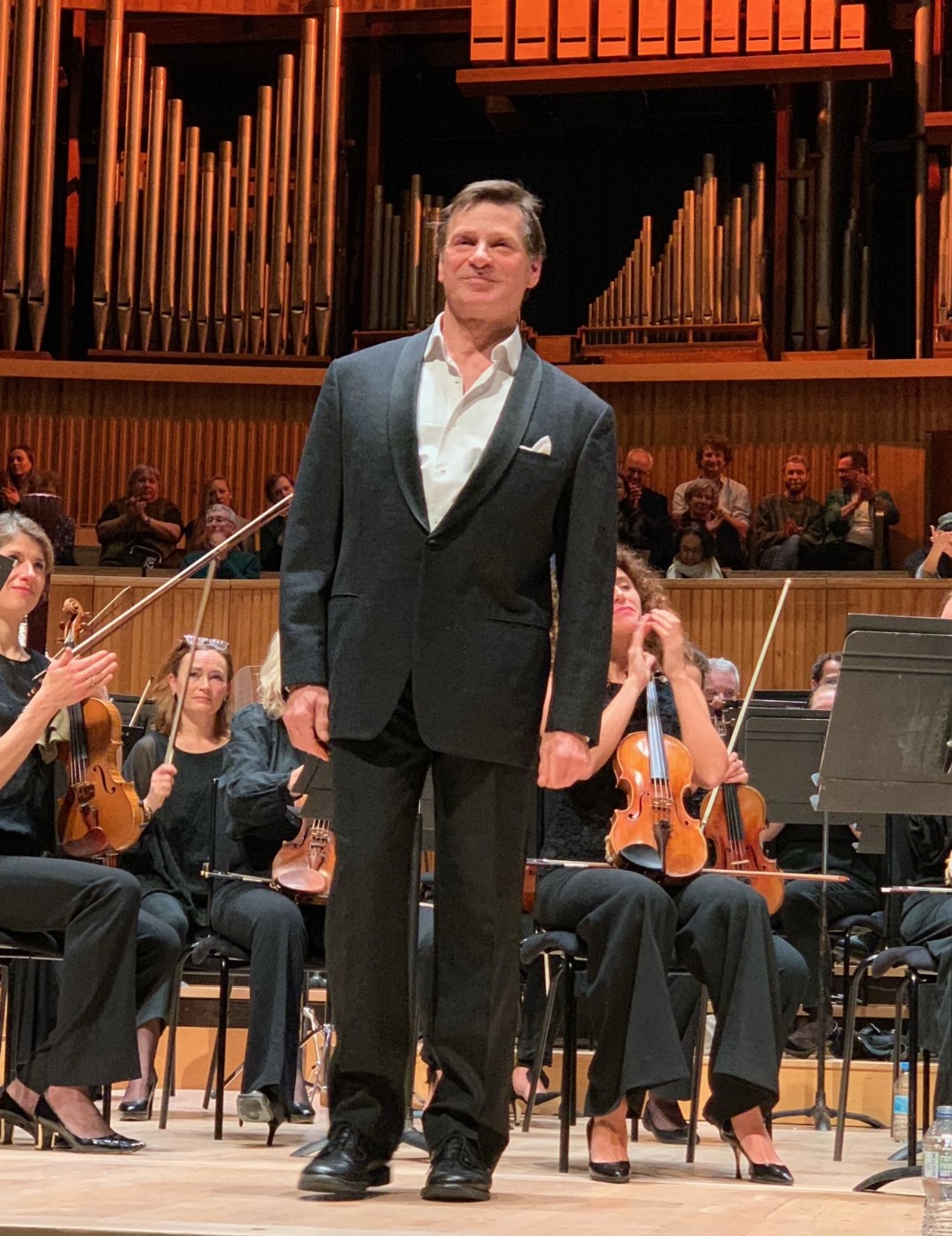
Photo: Patti Lynn Miller
Orchestra : London Philharmonic Orchestra
Conductor : Robin Ticciati
Simon Keenlyside : Baritone
Programme
Vaughan Williams Five Mystical Songs
Bruckner Symphony No. 9
From the LPO website:
Anton Bruckner dedicated his Ninth Symphony to ‘my beloved God’. At the end of a lifetime’s spiritual striving, he poured both his unquenchable faith and his agonising doubts into one mighty final testament – and then died before he could complete it. But even in its unfinished form, it’s overwhelming, and there’s no more thoughtful interpreter than Robin Ticciati, a conductor who has a very special relationship with the LPO. First, though, Simon Keenlyside sets the mood with Vaughan Williams’s Five Mystical Songs: ‘Such a Truth, as ends all strife / Such a Life, as killeth death …’
SOUNDBITES
"The Vaughan Williams felt like home territory for Keenlyside, surely the perfect voice for these pieces, his diction superb throughout, and sounding absolutely resplendent for the opening line ‘Rise up, the Lord is risen’. The Metaphysical poet George Herbert’s glowing poetry obviously acted as a spur to the composer’s imagination (the most famous Metaphysical poet remains John Donne) – the level of inspiration never drops. We heard the cycle in its version without choir, which generally gave it a more intimate aspect. Keenlyside’s confidence – and superb projection – was matched by the orchestra, translucent throughout. Ticciati found ebb and flow and a million little felicitous details in Vaughan Williams’s orchestration. ‘I got me flowers’, (like the first song, its text from Herbert’s Easter), was notable for some finely balanced woodwind. ‘Love bade me welcome’ became more of a narration with Keenlyside (and we got a chance to appreciate the strength of his lower register). Incredibly moving, this was probably the highlight of this small cycle. Lovely to hear Vaughan Williams’s harmonies glow in ‘The Call’. Contrasting this, the highly rhythmic, jubilant final ‘Antiphon’ (although not in itself devoid of mystery).
The combination of Ticciati’s textural clarity and Keenlyside’s textual clarity and complete understanding of Vaughan Williams’s expression was a winning one. Interesting to hear the piece minus chorus, too."
"It was a shame that we were deprived of the version for chorus as well as baritone solo in Vaughan Williams’ Five Mystical Songs which occupied the first half. Sir Simon Keenlyside was on fine form, easily conveying the mystical quality of George Herbert’s poetry in his care over the words, even if the composer rarely achieves other-worldliness in his tempered accompaniment."
"The Five Mystical Songs may be the work of an agnostic but they encode an abiding spirituality as surely as the grander sonic cathedrals of Bruckner – plus a less Brucknerian capacity for sentiment and celebration. The baritone was Simon Keenlyside, holding up wonderfully well to the depredations of time. As ever in this music he sang with patent sincerity, melding words and notes less flexibly than Roderick Williams but with stronger, ‘outdoorsy’ tone more evenly projected, I last heard him sing these songs in their conventional guise at the 2009 Proms and he recorded them with piano (including the choral ‘Antiphon’ that concludes the sequence) as long ago as 1996"
"...The LPO’s transparent performance suited the fact that this cycle was given in the version without chorus, and so became more chamber-like. Nonetheless in the first song in particular there were still some lovely burnished colours, as though somewhere between Elgar and Wagner. Woodwind – especially clarinets – made some tender contributions, notably in the interludes between each verse of ‘I got me flowers’ to delineate the strophic structure, and in ‘Love bade me welcome’. Simon Keenlyside enunciated the words throughout quite deliberately, syllable by syllable, giving the texts authority if not necessarily lyricism. His vociferous account of ‘Antiphon’ brought a confident end to the songs, the set making a stimulating contrast with the Bruckner to follow."
"...The Five Mystical Songs were sung by baritone Simon Keenlyside, who makes a splendidly vengeful Italian count on the operatic stage (he recently played Count Almaviva) and was impressive in the more ecstatic moments, but completely missed the hushed rapt tenderness of “Love bade me Welcome”, the emotional heart of the songs."
"...Simon Keenlyside brought a welcome homespun quality to George Herbert’s milky verses but his voice showed rough edges and his repeated glances at his score didn’t inspire a huge amount of confidence."






